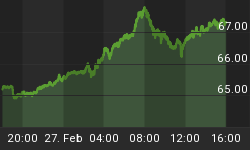Gold and Liquidity

The issues facing the developed world's financial systems are ones of liquidity and solvency, among others. The assumptions of liquidity levels proved horribly incorrect! The request of the IMF to lift their resources from $380 billion to $980 billion and the currency swaps between the U.S. and Eurozone confirm that (these may still prove inadequate). Many markets, which reserve managers had considered to be deep and liquid, proved to be the exact opposite with assets-selling only at a large discount. This was even true of some AAA-rated assets, showing that credit ratings offered no effective guide to liquidity. Many central banks had to rely on bi-lateral currency agreements with other central banks, principally the US Federal Reserve.
The situation is heading for even stormier waters on both sides of the Atlantic. But true to history, the gold market remained liquid throughout the financial crisis. This was the case even at the height of liquidity strains in other markets - a reflection of the size, low market concentration, and flight to quality tendencies of gold. As we said earlier: the Swedish Riksbank used its gold reserves at the height of the crisis to finance temporary liquidity assistance.
A look at what we have said so far in this series answers the question that gold confiscation can really happen, but the question of when and under what specific conditions remain. We look at this now...
Confiscation of Citizen's Gold
To get the issue in perspective, gold as a financial asset -- providing liquidity as cash should do but doing so globally -- is strongly on the rise, irrespective of its price. A look forward into 2012 points to deeper and more confidence-destructive financial crises, if not worse than we have seen in 2011. With the problems being structural and so far inadequately addressed, expect to see some deep damage done to the developed world's financial system and most likely its banking system. Gold as a financial asset may provide a safety net as well as the means to repair national currencies. All the world's currencies are interlinked, and banking systems are telling us that gold has already swung into action to provide financial relief. But it will need to see a very large expansion of this role if it is to defer or rectify these crises.

In a crisis the price of gold becomes irrelevant, it is the number of ounces you have that counts!
That's why the surplus earning worlds central banks are buying gold at the expense of currencies, particularly the U.S. dollar. We would go so far as to say that all the world's central banks are very aware of the need to continue to use gold in the monetary system and more pertinently, that that role is growing, much as they hate that prospect.
Should the crises continue to grow this way, we have no doubt whatsoever that governments will consider confiscating their citizen's gold. There's a point in a decline in currency confidence where this is inevitable! Expect that developed world, central bankers have laid down contingency plans for just such an event.
Should they do so, it will likely be done at a weekend when markets are closed and when their citizens will not have time to take action to prevent such a confiscation. It will be overnight, and gold will be gone. As in 1933, the penalties for not handing over personally owned gold will be draconian. Gold held within a nation confiscating their citizen's gold in the country's banks will be handed over without reference to the clients themselves first.
(After more than a year's delay, we're informed that there is now an entity whose objective is to counter any attempt to confiscate citizen's gold. We will be informing Subscribers about this.)
Member's only:
Is Confiscation Imminent?
Get the rest of the report. Subscribe @
www.GoldForecaster.com / www.SilverForecaster.com















